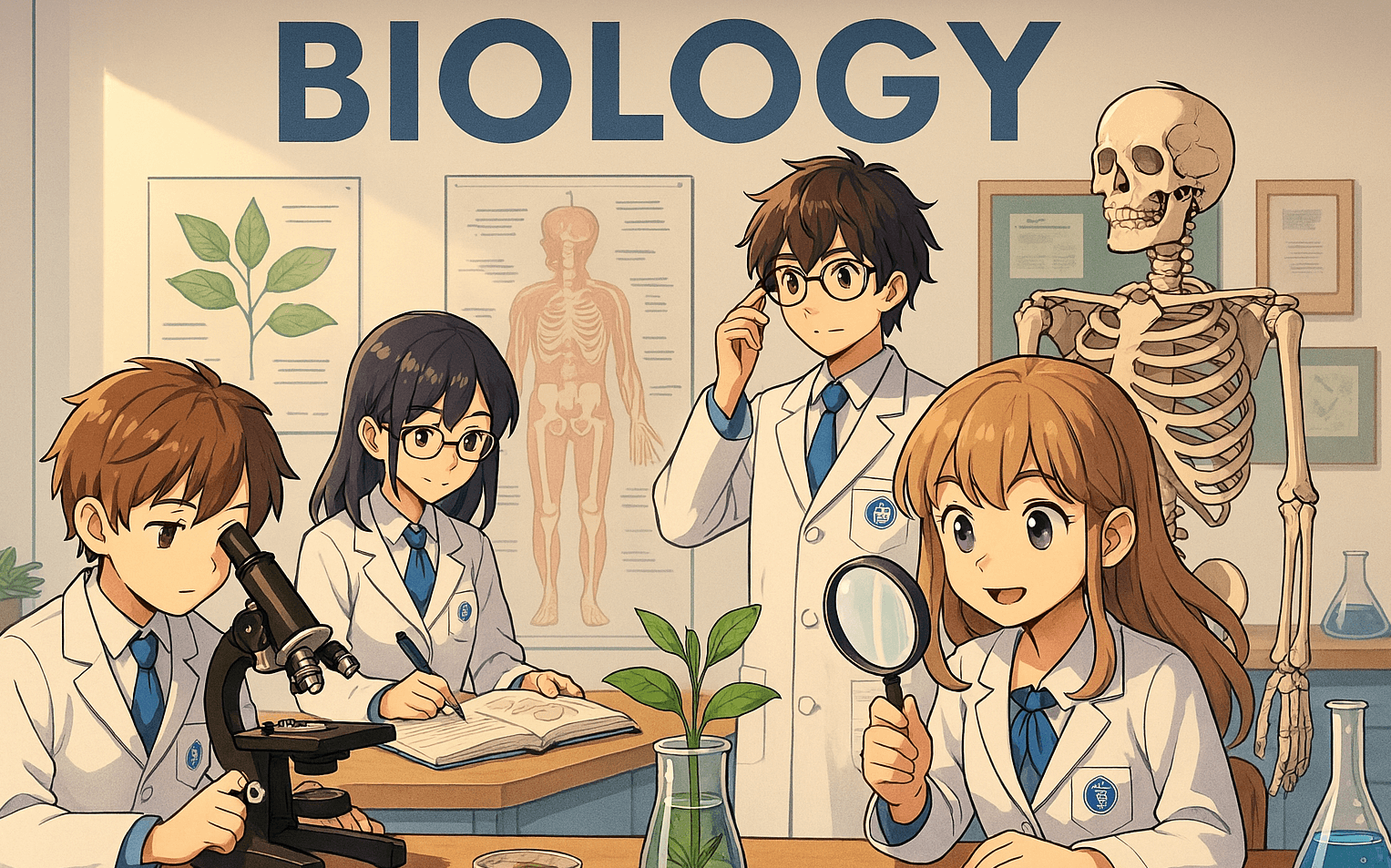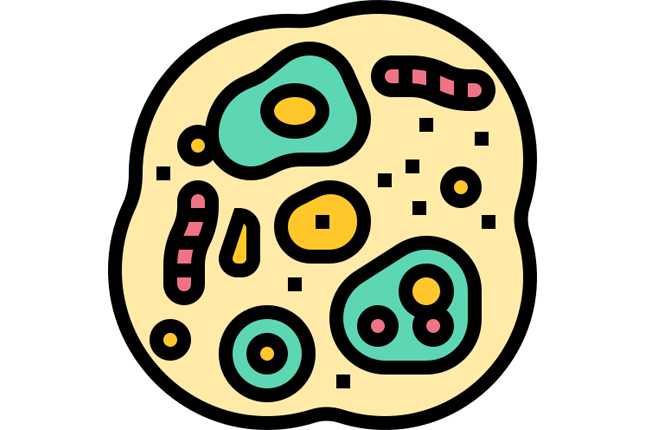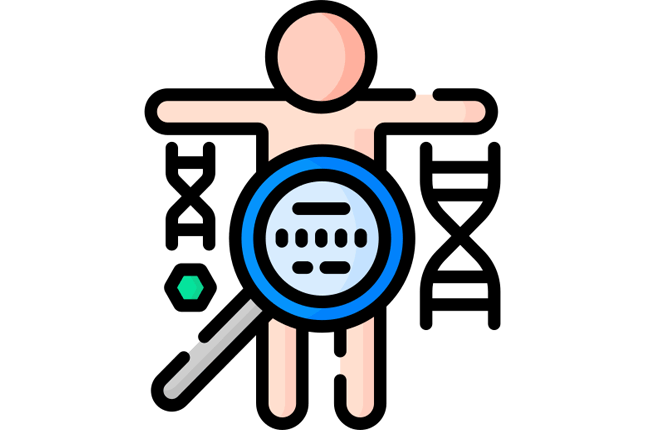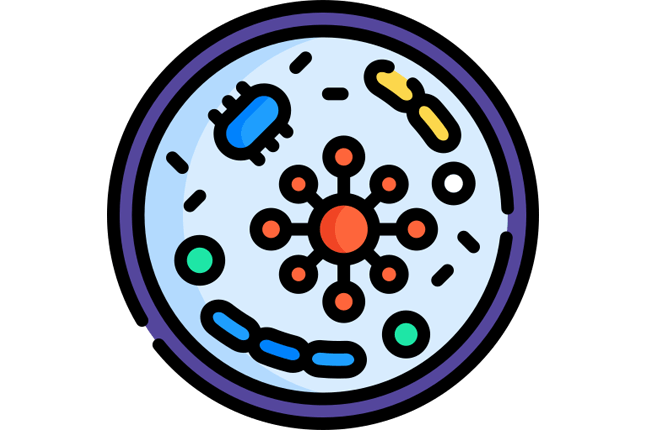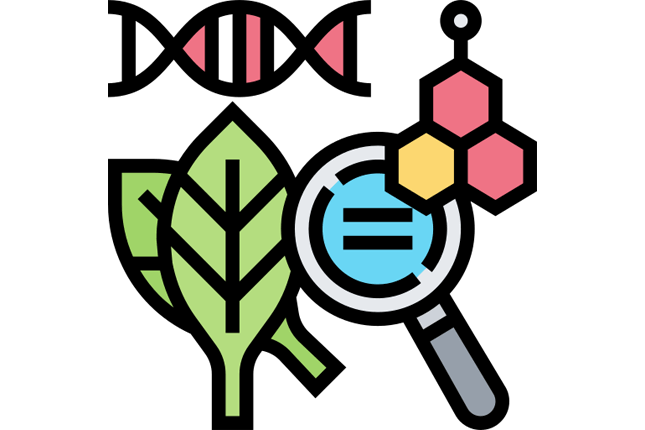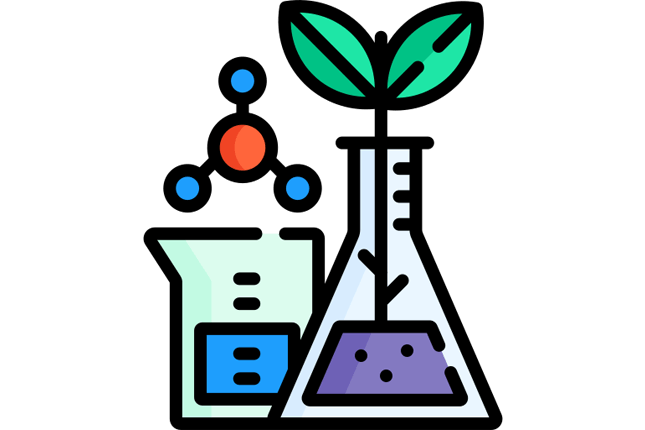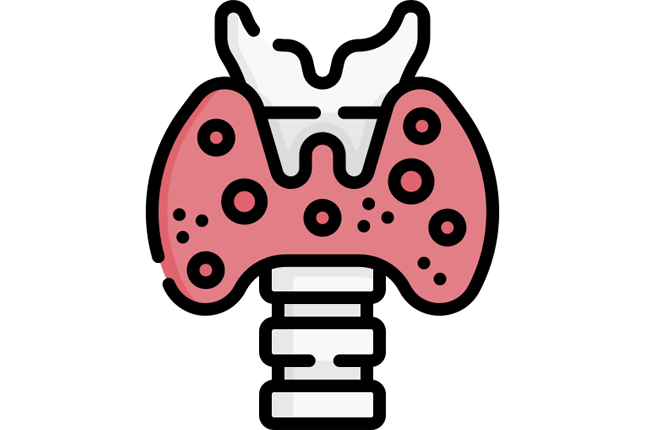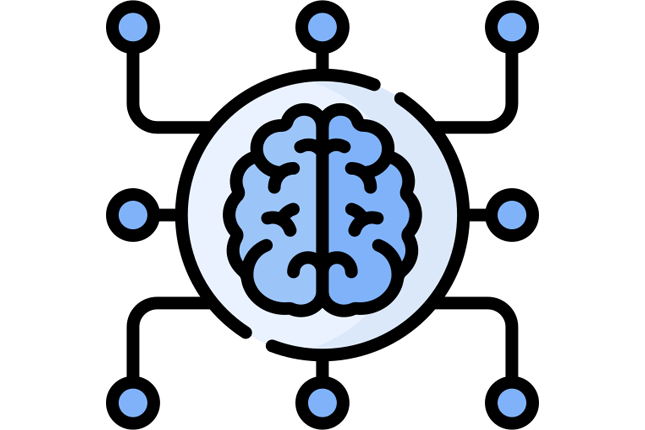Key Concepts in Biology
Essential Biology Topics and Their Practical Uses
Biology stands as a rich scientific discipline that examines living organisms, their intricate structures, and their ongoing interactions with the environment. By delving into everything from the molecular details of genetic material to the broad ecological networks that sustain life on Earth, biologists shed light on essential functions, evolutionary progress, and the interconnected relationships upon which ecosystems depend. The following sections explore fundamental areas within biology, illustrating why these topics hold immediate significance for human health, agriculture, medicine, conservation, and countless other domains.
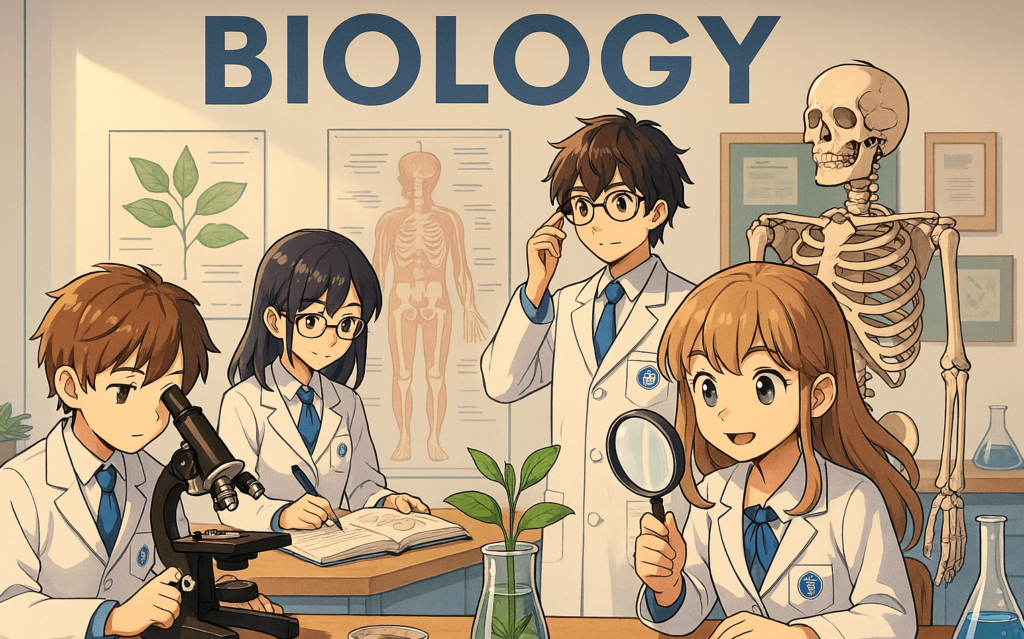
Cell Biology
Cell Structure and Function
At the most basic level, cells form the building blocks of all organisms. These microscopic structures encompass an array of organelles, each with its own specialized task. The cell membrane, a flexible but selective barrier, regulates which substances enter or leave, enabling nutrients to flow in while discarding metabolic waste. The nucleus, protected within most eukaryotic cells, houses the genetic code in the form of DNA, steering protein production and overseeing cellular replication. Additional organelles, including mitochondria, ribosomes, and endoplasmic reticula, coordinate energy generation, protein synthesis, and lipid processing. These molecular-scale activities collectively determine whether a cell remains healthy, adapts effectively to environmental changes, or succumbs to stressors.
By mapping the roles of these organelles, researchers in fields such as medicine and developmental biology can understand how disruptions – genetic, chemical, or pathogenic – might compromise normal processes. This comprehension proves vital for interpreting disease mechanisms, designing targeted therapies, and nurturing effective cellular technologies. Engineers also draw upon knowledge of membrane function when developing drug delivery systems that mimic the cell’s ability to regulate molecular traffic.
Cell Division
Growth, tissue repair, and reproduction hinge on mechanisms that enable cells to divide and multiply. In multicellular organisms, mitosis divides one cell into two genetically identical copies, a process fundamental to embryonic development and wound healing. Mitosis ensures that each daughter cell inherits an accurate distribution of genetic information so the body can maintain functioning tissues. On a broader scale, uncontrolled or abnormal mitotic events can produce cancerous growths, driving a host of clinical concerns.
Meiosis, another form of cell division, supports sexual reproduction by halving the chromosome set in specialized cells known as gametes, ensuring that offspring inherit traits from both parents without doubling genetic material every generation. The fusion of eggs and sperm in species ranging from fruit flies to humans relies on the streamlined distribution of chromosomes. Observations of this process guide fields like reproductive medicine, agricultural breeding, and conservation biology, where selective mating aims to preserve desirable characteristics or bolster the genetic health of endangered populations.
Genetics
DNA and RNA
DNA and RNA store, transmit, and implement genetic information in organisms. In DNA, the arrangement of nucleotide bases encodes instructions for making proteins, while various forms of RNA work as interpreters, carrying sequences from DNA to ribosomes where proteins assemble. These nucleic acids are not only chemical blueprints but also evolutionary threads: comparing DNA sequences among different species unearths shared ancestry and helps classify diverse life forms.
Laboratories that explore genetic material generate benefits in realms such as disease research. Techniques like polymerase chain reaction amplify tiny segments of DNA, enabling quick diagnostic tests or forensic identification. Researchers also study RNA viruses, including certain flu strains and coronaviruses, to better understand how they replicate and how vaccines might halt infection. Proficiency in these molecular mechanisms opens avenues for novel treatments and more precise medical diagnostics.
Genetic Inheritance
Patterns of inheritance, once uncovered through Gregor Mendel’s classical pea plant experiments, continue to clarify how traits pass down from one generation to the next. Dominant and recessive alleles, co-dominance, and sex-linked traits illustrate various ways that genes influence observable features. Modern molecular biology extends these findings by pinpointing specific genes that may predispose individuals to certain conditions.
Plant and animal breeders harness this knowledge to cultivate organisms with desired qualities. By tracking inheritance patterns, they can produce crops that resist drought or pests, improving productivity. Physicians refer to the same principles while examining hereditary diseases, searching for genes associated with heightened risk factors, and advising families on potential strategies for care and early intervention.
Genetic Disorders
Certain genetic anomalies arise from mutations or chromosomal irregularities, sometimes leading to conditions like cystic fibrosis, sickle cell disease, or Down syndrome. Researchers who decode how these disorders manifest can propose therapies to manage symptoms or slow disease progression. Genetic screening tools guide people considering parenthood, offering clarity on the likelihood of passing on mutations.
Biotechnological innovations strive to repair faulty genes or mitigate harmful mutations. Methods include gene therapy, an approach that introduces corrective genetic elements into a patient’s cells. Although challenges remain – like targeting the correct tissue – this area underscores how foundational genetic knowledge drives transformative medical solutions. Discoveries in this category also extend to gene editing approaches designed for agricultural use, where preventing disease in livestock or improving nutritional content in plants holds promise.
Evolution
Natural Selection
Charles Darwin’s concept of natural selection reveals how species adapt across generations, with traits that support survival or reproduction becoming more prevalent in future offspring. Environmental pressures, including predators, resource limitations, and climate variability, shape which traits confer advantage, eventually steering the direction of a population’s characteristics. From antibiotic-resistant bacteria to finches evolving distinct beak shapes, natural selection offers a unifying explanation for biological diversity.
Fields such as conservation biology and wildlife management incorporate these principles to protect species. By identifying which traits help organisms persist in a changing habitat, researchers devise targeted strategies to reinforce gene pools. Natural selection also highlights the dangers of overusing antibiotics: medical experts caution that indiscriminate prescriptions fuel resistant bacterial strains, making once-minor infections more difficult to treat.
Speciation
Speciation, the emergence of new species from common ancestors, captures how geographic isolation, genetic drift, and novel environmental factors gradually forge reproductive barriers. Two populations separated by a mountain range or a large body of water might accumulate distinct mutations and adapt to slightly different conditions, eventually crossing a threshold where they can no longer interbreed successfully.
Understanding these branching processes helps clarify the depth of Earth’s biodiversity. Biologists investigate fossil records, molecular data, and morphological traits to piece together lineage relationships. In contemporary research, scientists examine how climate shifts drive ranges of certain species northward, potentially splitting populations into new evolutionary pathways. Speciation also informs restoration efforts in locations where habitats have fragmented, prompting projects to connect isolated populations and preserve genetic vitality.
Ecology
Ecosystems and Biomes
Ecosystems house intricate relationships among living organisms – plants, animals, fungi, microbes – and the physical environment that shapes these communities. Multiple ecosystems across the planet classify into broader biomes, such as deserts, grasslands, tundra, or tropical rainforests, each possessing its own characteristic climate, vegetation, and biodiversity patterns. Studying these natural systems assists in pinpointing how energy and nutrients circulate through living networks, revealing how disruptions in one link can ripple throughout the web.
Policy makers and scientists alike rely on ecological data when establishing wildlife reserves or regulating resource extraction. Conservation efforts often revolve around safeguarding particular habitats that house keystone species, whose presence upholds the stability of the entire community. For instance, certain pollinators in forest ecosystems ensure that flowering trees continue to reproduce, sustaining not only local plant life but also the animals that feed on their fruit.
Food Webs and Trophic Levels
Food webs translate the flow of energy from primary producers, such as plants or algae, through various herbivores and predators. While some webs look simple, many reveal extensive interconnections, with species occupying different trophic levels that either consume or recycle organic matter. Trophic cascades occur when the removal or reintroduction of a key predator dramatically shifts the entire network. For example, the reintroduction of wolves to Yellowstone National Park changed elk grazing habits, rejuvenating certain vegetation and indirectly benefiting other wildlife.
Agricultural management often adapts these principles by rotating crops or introducing natural predators for pest control rather than relying solely on chemical methods. Marine biology applies similar insights when evaluating fish populations. Understanding where a species sits in the food chain clarifies how overfishing top predators can unbalance marine ecosystems and eventually threaten coastal economies and global food sources.
Human Impact on the Environment
Industrial activities, urban expansion, and pollution shape the structure of ecosystems worldwide, accelerating habitat loss and fragmenting populations of vulnerable species. Deforestation can eliminate vital carbon sinks, while polluted waterways undermine fish stocks and degrade water quality for communities. Observing how these factors alter biodiversity and climate patterns prompts rethinking industrial processes, waste management, and habitat protection.
Scientists and environmental policymakers collaborate to track carbon emissions, restore wetlands, or promote renewable energy solutions that lessen the strain on nature’s resources. Although certain shifts in climate or land use can be difficult to reverse, thoughtful initiatives aim to reduce further harm. Ecological research supplies the baseline data essential for assessing these efforts, identifying whether protective measures truly help maintain species diversity or preserve essential ecosystem functions.
Human Biology
Major Organ Systems
Human physiology rests on a series of interdependent organ systems that carry out vital tasks. The circulatory system distributes oxygen and nutrients, the respiratory system acquires oxygen from the air, and the digestive system breaks down foods to extract usable molecules. The nervous system processes external and internal stimuli, sending rapid signals to manage everything from muscle coordination to mood regulation. Each organ, from the heart to the kidneys, must coordinate activity to sustain life.
In healthcare, recognizing how these systems align aids the design of clinical treatments. Knowing that respiratory infections can strain the heart if untreated, or that digestive imbalances affect nutrient absorption, guides physicians in diagnosing root causes rather than simply treating isolated symptoms. Athletes and fitness enthusiasts also apply these principles, exploring how specialized training regimens or nutritional strategies can refine respiratory efficiency, muscular strength, or metabolic balance.
Homeostasis
The human body self-regulates temperature, pH, fluid levels, and other internal parameters through a balancing act known as homeostasis. Sensors detect deviations from set points, triggering mechanisms to restore equilibrium. This constant fine-tuning occurs through feedback loops involving hormones and nerve signals, adjusting bodily processes to maintain stable conditions even in the face of environmental fluctuations.
Medical fields consider homeostasis when treating chronic conditions, such as diabetes, where the body struggles to regulate glucose levels. Pharmacological interventions or lifestyle modifications can help reestablish more typical metabolic ranges. In extreme environments, such as deep sea diving or high-altitude trekking, specialists analyze how the body responds to changes in pressure or oxygen availability. The knowledge gleaned shapes both rescue protocols and the design of technology – like specialized suits – that enable humans to function safely in harsh conditions.
Microbiology
Bacteria and Viruses
Bacteria and viruses have profound effects on global health and ecosystems. Certain bacteria live symbiotically in the human gut, helping break down food and synthesize vitamins. Others cause infections such as strep throat, prompting antibiotic interventions. Viruses, meanwhile, enter host cells and repurpose the cellular machinery to replicate, manifesting in illnesses like influenza or more severe diseases. Understanding the genetic makeup and replication strategies of these pathogens guides the development of medicines and vaccines.
Public health strategies pivot on these insights, aiming to contain outbreaks by targeting vulnerable points in microbial life cycles. Water treatment plants introduce specific disinfecting methods to kill bacteria, while hospitals maintain rigorous sterilization protocols to lower infection risk. Researchers also harness beneficial bacteria in processes such as fermentation for food production or in engineered microorganisms that degrade pollutants in bioremediation efforts.
Microbial Ecology
Microbes thrive in oceans, soil, and even extreme environments like deep-sea vents or polar ice caps. Their collective actions shape nutrient cycling, soil fertility, and oxygen balance. Microbial communities in the soil are integral to decomposing organic matter and returning essential elements, such as nitrogen, back to the environment for use by plants. Similar processes occur in bodies of water, where bacteria regulate aquatic nutrient availability.
These interactions guide environmental scientists who gauge soil health, water quality, and the stability of broader ecological networks. Agriculture integrates such microbial knowledge by promoting beneficial bacteria around crop roots, boosting yields without excessive reliance on harsh chemicals. Insights into microbial interactions also spark innovations in producing biofuels or managing waste, reducing human ecological footprints.
Plant Biology
Photosynthesis
Photosynthesis stands as the mechanism by which plants, algae, and certain bacteria convert light energy into chemical energy, storing it in carbohydrates while releasing oxygen. This process not only fuels plant growth but also supplies the foundation for almost all terrestrial and aquatic food webs. Since animals depend on oxygen and the organic compounds that plants produce, photosynthesis drives life across the globe.
Farmers and horticulturists optimize plant health by studying photosynthetic needs, ensuring that crops receive sufficient light, water, and nutrients for robust yields. Environmental scientists consider plant communities as major carbon sinks that moderate atmospheric carbon dioxide levels. Detailed knowledge of photosynthetic pathways also influences selective breeding and modern genetic approaches that aim to raise crop resilience, produce higher nutritional quality, or adapt to harsh climates.
Plant Reproduction
Plants reproduce through sexual or asexual methods, with pollination serving as a principal route for many flowering species. Structures like petals and nectar rewards attract pollinators – bees, butterflies, birds – that carry pollen from one bloom to another. Meanwhile, some plants rely on wind or water to disperse gametes. Understanding pollination biology reveals how entire agricultural systems remain dependent on healthy pollinator populations for fruit and seed production.
Researchers track how certain pollinators decline due to habitat loss or pesticide exposure, risking reduced yield in crops such as almonds, apples, and various vegetables. Conservationists collaborate with farmers to protect pollinator-friendly habitats. Asexual reproduction mechanisms also matter in horticulture, where cuttings from a parent plant can reliably replicate particular traits. From orchard management to preserving rare flora, plant reproduction stands at the heart of stable food supplies and ecosystem diversity.
Biotechnology
Genetic Engineering
Biotechnology merges biological science with practical applications, and genetic engineering stands among its most transformative tools. By modifying genes directly – either inserting desired traits or silencing unwanted ones – researchers can produce organisms better suited to specific roles. Crops engineered for resistance to certain pests or herbicides can reduce chemical reliance, while bacteria redesigned to produce medical proteins revolutionize pharmaceutical production.
Public debate often focuses on ethical and ecological questions surrounding genetically engineered organisms. Regulatory bodies assess safety before allowing these innovations to reach the market. Certain labs explore gene editing approaches like CRISPR that bring unprecedented precision in targeting particular genetic locations. Beyond agriculture, some projects investigate how gene modifications might treat human genetic disorders by correcting mutations at their source.
Cloning
Cloning aims to generate genetically identical copies of cells, tissues, or entire organisms. Animal cloning captured headlines when Dolly the sheep became the first mammal cloned from an adult cell, underscoring both the potential and the ethical considerations of replicating advanced life forms. Medical research harnesses cloning technology to cultivate tissues that might be used for transplants, lowering rejection risks if tissue matches the patient’s genetic profile.
Conservation biology views cloning as a possible route to rescue endangered species. However, critics question whether such methods truly preserve biodiversity if entire populations rely on limited genetic templates. The intricacies of replicating complex organisms push scientists to refine cloning protocols, investigate long-term stability, and assess how environmental factors influence the success rate. While it remains an evolving field, cloning exemplifies how fundamental knowledge of cellular function translates into far-reaching possibilities.
Immunology
Immune System Function
The immune system shields organisms from potentially harmful microbes and foreign particles by identifying and neutralizing invading entities. White blood cells, including macrophages and lymphocytes, collaborate with diverse signaling molecules to detect and destroy pathogens. This protective network adapts through immunological memory, enabling a faster, more vigorous response upon repeated encounters with the same threat.
Medicine gains powerful tactics by understanding these details, including the creation of vaccines that prepare the immune system to respond effectively to real infections. Researchers continue to uncover how certain microbes evade defenses, prompting revised strategies against persistent infections. When new pathogens emerge, immunological research accelerates efforts to design therapies or prophylactics, aiming to safeguard broader populations.
Autoimmune Diseases
Sometimes the immune system malfunctions, targeting the body’s own cells and tissues as though they were foreign. Conditions like rheumatoid arthritis or type 1 diabetes arise when self-reactive immune cells inflict damage on key structures, causing chronic inflammation or organ dysfunction. Examining these processes illuminates how immune checkpoints and regulatory pathways might be harnessed to reduce self-attack while maintaining defense against external pathogens.
Therapeutic approaches to autoimmune diseases often include immunosuppressive treatments that calm overactive immune responses, though careful balancing is necessary to ensure defense mechanisms against infections remain intact. Researchers who investigate these conditions search for ways to enhance immune regulation without widespread immune compromise, leveraging molecular insights into T cells, B cells, and cytokines. By refining such strategies, immunology edges closer to treatments that are both specific and effective for those living with autoimmune disorders.
Endocrinology
Hormonal Regulation
Endocrinology deals with glands and hormones that coordinate bodily processes, from metabolism and energy usage to growth and reproduction. Small fluctuations in hormone concentrations can shift an individual’s appetite, sleep cycle, or stress response. These messengers travel through the bloodstream, binding to receptors in target cells, which then alter metabolic pathways, gene expression, or cell activity.
Sports professionals and coaches track hormone profiles to optimize training routines and recovery phases. In medical settings, doctors manage conditions like hyperthyroidism or adrenal insufficiency by administering hormones that restore physiological equilibrium. Understanding these regulatory networks also has broad relevance for mental health, as certain hormone imbalances can affect mood or cognitive function.
Endocrine Disorders
Medical conditions that stem from hormonal imbalances or glandular dysfunction can produce an array of symptoms. Diabetes emerges when the body fails to manage glucose levels properly, either due to limited insulin production or insufficient insulin responsiveness. Thyroid disorders can disrupt metabolism, causing chronic fatigue, weight fluctuations, or cardiovascular strain.
Healthcare practitioners diagnose and treat these issues by studying hormone levels in blood samples. Pharmaceutical therapies might include external hormone supplementation or drugs that refine the body’s response to hormones. For individuals with severe hormone imbalances, consistent monitoring of endocrine function ensures that treatments remain aligned with evolving physiological needs. Progress in this arena often results from research that explores how each endocrine organ – from the pituitary gland to the pancreas – coordinates with the rest of the body.
Neuroscience
Nervous System Function
Neuroscience uncovers how the brain, spinal cord, and peripheral nerves coordinate perception, movement, emotion, and cognition. The brain’s billions of neurons exchange electrical and chemical signals, shaping everything from reflexes to language comprehension. Sensory inputs travel through nerve pathways, allowing individuals to hear, see, touch, or experience other stimuli. Motor commands, in turn, instruct muscles to contract for actions as simple as standing or as complex as playing a musical instrument.
Clarity about neurological systems supports clinical fields that address mental health, learning disorders, or degenerative conditions like Alzheimer’s. By mapping specific brain regions and uncovering how neural networks operate, specialists can better tailor rehabilitative exercises after strokes or design interventions that help children with dyslexia adapt in classroom settings. Technological innovations, such as deep brain stimulation, illustrate how targeted manipulations of neural circuits might alleviate severe tremors or depression symptoms.
Neurotransmission
Neurotransmitters bridge the gaps between neurons, known as synapses, carrying signals that prompt the recipient cell to respond by firing or inhibiting an impulse. This interplay underlies memory formation, mood regulation, and nearly every dimension of conscious awareness. Researchers who investigate neurotransmitters like dopamine, serotonin, or acetylcholine discover the roots of motivation, sleep patterns, or stress responses.
Pharmacology intersects with this knowledge by creating drugs that influence specific neurotransmitters. Antidepressants, for instance, may raise the availability of serotonin, improving mood. Physicians prescribe medications that adjust dopamine activity for individuals with Parkinson’s disease to control movement-related symptoms. Equally, an overabundance of excitatory signals or a deficiency in inhibitory signals can lead to seizures or other imbalances, prompting further studies on how best to restore equilibrium.
Wrapping It Up
Biology offers a roadmap for understanding life in all its forms, from microscopic cells to sprawling ecosystems. Each topic – cell division, genetic inheritance, species interactions, or nervous system processes – contributes to a deeper awareness of how organisms function, adapt, and sometimes falter. Discoveries in these fields lead directly to improvements in medicine, environmental stewardship, and everyday well-being. Advancements in genetics drive molecular medicine, opening the door to refined approaches for diagnosing inherited disorders. Insights into ecology guide global conservation efforts that balance human growth with preserving biodiversity. Observations on how hormones or immune cells operate allow people to manage chronic conditions or design new treatments for emerging infections.
A closer look at these areas illuminates the connections weaving across biology. Cell membranes relate to genetic engineering by presenting channels for introducing modified DNA. Microbial interactions inform immunologists about potential threats or alliances within the body. Endocrinological studies overlap with neuroscience in determining how hormones shape behavior and cognition. This ongoing dialogue among subfields encourages a holistic perspective that unites physiology, ecology, microbiology, and molecular genetics under one scientific banner.
Such an integrative view emphasizes that biology, far from being confined to textbooks and laboratories, resonates in the everyday experiences of individuals worldwide. Food choices, habitat conservation decisions, and medical interventions all hinge on biological realities that influence each other. Through continued investigation and education, society can adapt more effectively to challenges, whether those challenges arise in the form of antibiotic-resistant pathogens, climate instability, or novel health conditions. Ultimately, biology remains a vibrant, evolving discipline that reminds us of the interconnectedness of life and the potential for thoughtful innovations that promote flourishing ecosystems and healthier communities.

